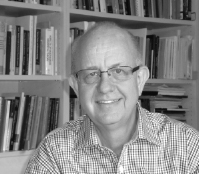The UK’s Royal Society is a fellowship of the world’s most eminent scientists and is the oldest scientific academy in continuous existence. Fellows are elected for life through a peer review process on the basis of excellence in science. Each year 44 new Fellows are elected by existing Fellows. Among those elected this year are two IMS Fellows.
Professor Steffen Lauritzen is a professor of statistics in the Department of Statistics at the University of Oxford, and a Fellow of Jesus College, Oxford. Steffen is distinguished for his many contributions to the theory and practice of statistical science. Most notably, he pioneered the field of graphical models, which provide simple and powerful tools for encapsulating conditional independence structures. The area is now a central part of mainstream statistics, and has revolutionized many applications. Lauritzen’s contributions range from deep insights into the mathematical structure of this class of models, through innovative and efficient algorithms for their analysis, to applications in artificial intelligence, forensic science and medical diagnosis. Other important work has characterized the analytic structure of statistical models from a differential geometric perspective, via sufficiency.

Professor Simon Tavaré is a professor in the Department of Applied Mathematics and Theoretical Physics and Professor of Cancer Research, Department of Oncology, University of Cambridge, as well as Senior Group Leader in the Cancer Research UK Cambridge Research Institute. Simon is an internationally recognised figure in the interface between statistics, probability and biological and medical sciences. He has made important contributions to the study of combinatorial stochastic processes, population genetics and statistical bioinformatics. His work in the analysis and interpretation of DNA sequence and related genomic data includes statistical aspects of coalescent theory, including the first full likelihood-based methods for the analysis of sequence variation data, methods for ancestral inference, and for likelihood-free inference and approximate Bayesian computation for complex stochastic processes. He has pioneered the development of evolutionary genomic approaches for understanding cancer.

Comments on “Royal Society elects Steffen Lauritzen and Simon Tavaré”